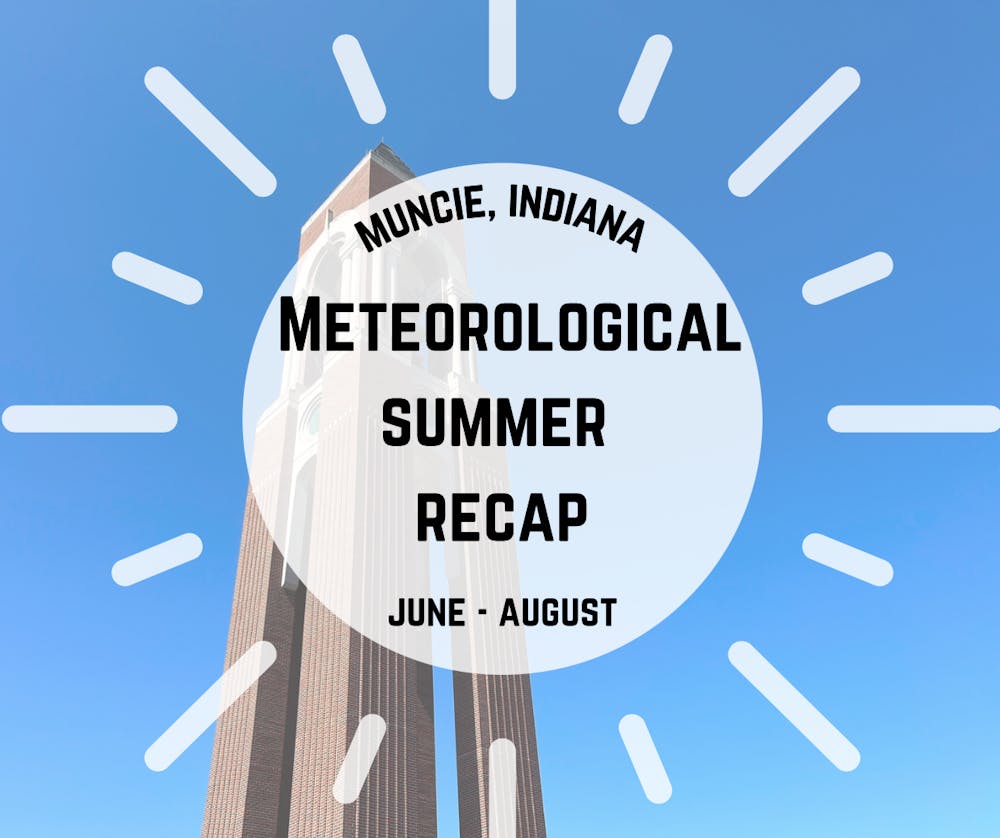Meteorological summer refers to the months of June, July, and August. Meteorologists use the term "meteorological summer" in reference to the annual temperature cycles, meaning June, July, and August are typically the hottest months of the year. Astronomical summer is what most people use and that is based off of Earth's position to the sun (this year: June 21st - September 23rd).
Temperature:
On average, this meteorological summer was a touch cooler than normal. The average temperature was 72.5ºF.
June is typically when high temperatures start to moderate in the 80s. It started off with a 3 day hot streak in the 90s, then it quickly cooled and we saw a streak of highs not even topping 70ºF. 90s were not reached again for the remainder of the month. The average temperature for the month was 3 degrees cooler than normal.
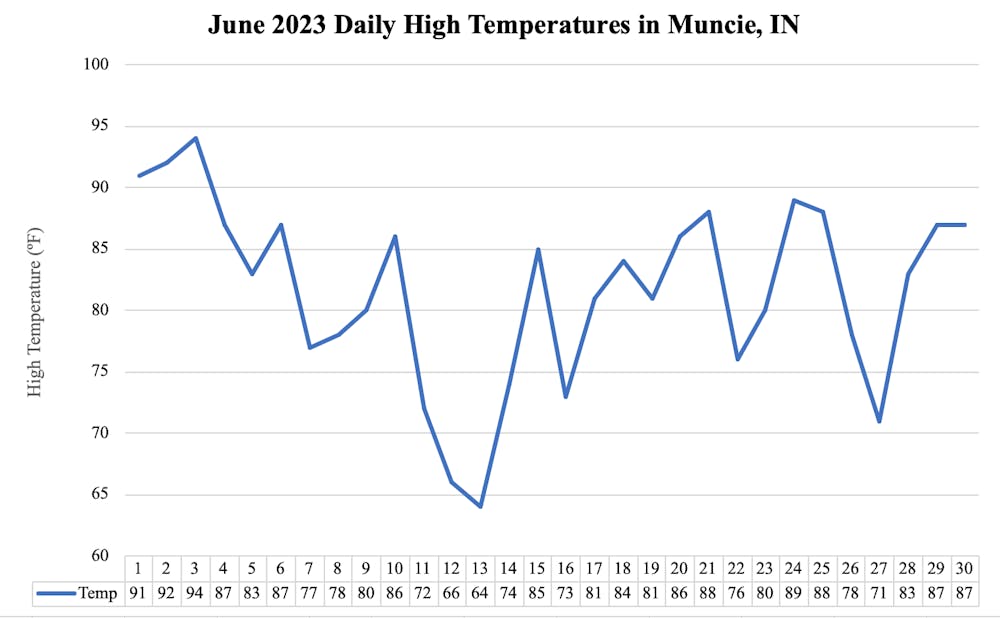
Muncie typically sees 14 days of high temperatures reaching 90 degrees or above throughout June to August. This year, we saw 10 days (3 in June, 3 in July, 4 in August) which is ranked 23rd fewest days on record.
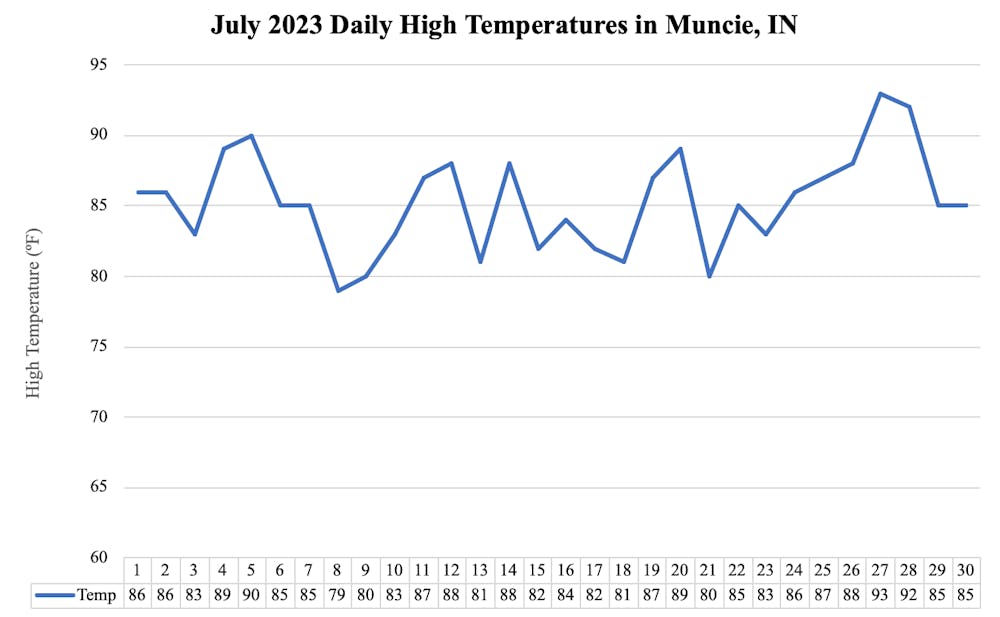
August introduced our first heat wave of the summer. Heat indicies entered the triple digits for the first time this year as dew points flirted with the 80 degree mark. A strong cold front followed the heat wave which brought in much drier, cooler air. Dew points receeded into the 50s, making for a fall-like feel.
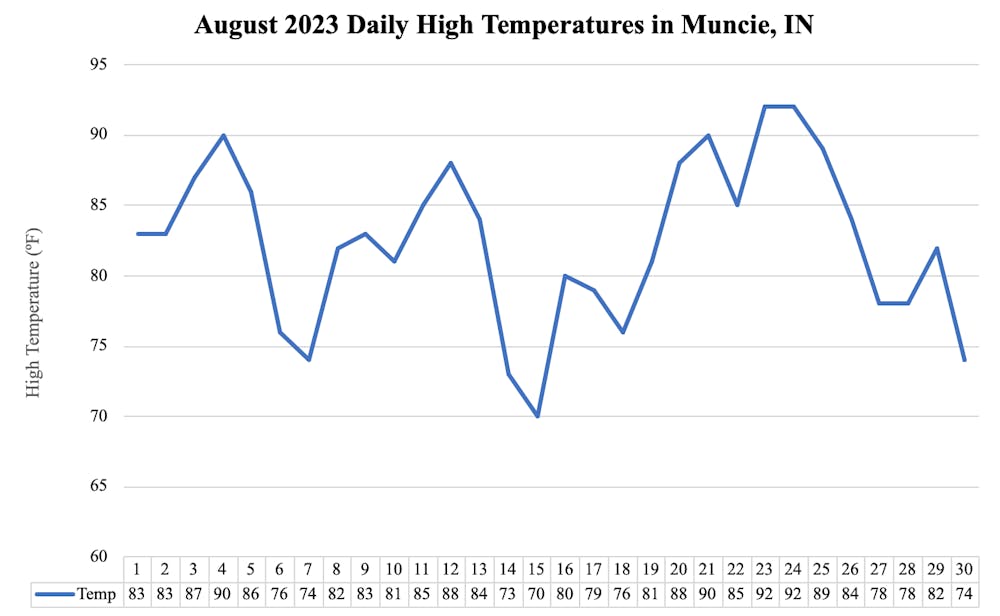
Precipitation:
June gave us a dry start to summer. There was only 2.48” of rain recorded, when, on average, we see 4.49” for the month. June 2023 was ranked the 13th driest on record. Due to the dry conditions, we saw consecutive weeks with drought reported.
The start of July, however, brought much needed relief. The first day of July, 1.65” of rain fell. More surprisingly, we saw more rain throughout the first week of July than we did during the whole month of June! 2.87” of rain was recorded, which is the 3rd wettest start to July on record.
August also had a few downpours from thunderstorms which added up to an above average 3.66” of rain for the month. Even with the wet months of July and August, meteorological summer was slightly drier than normal. 10.19” in total fell, when Muncie typically sees 11.81”.
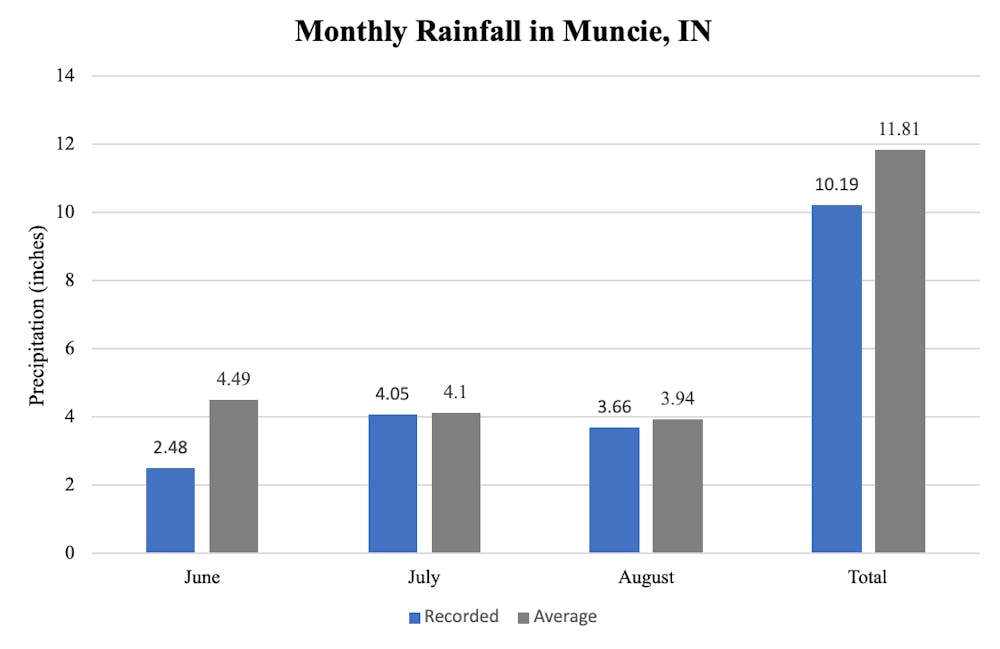
More archived climatological data for Muncie, Indiana can be found here.
-----
Follow us on Facebook, Twitter, and Instagram @NLIWeather for breaking weather updates.
NewsLink Indiana is a proud Ambassador for the NOAA Weather-Ready Nation program.
For more information about the Weather-Ready Nation program please click HERE

